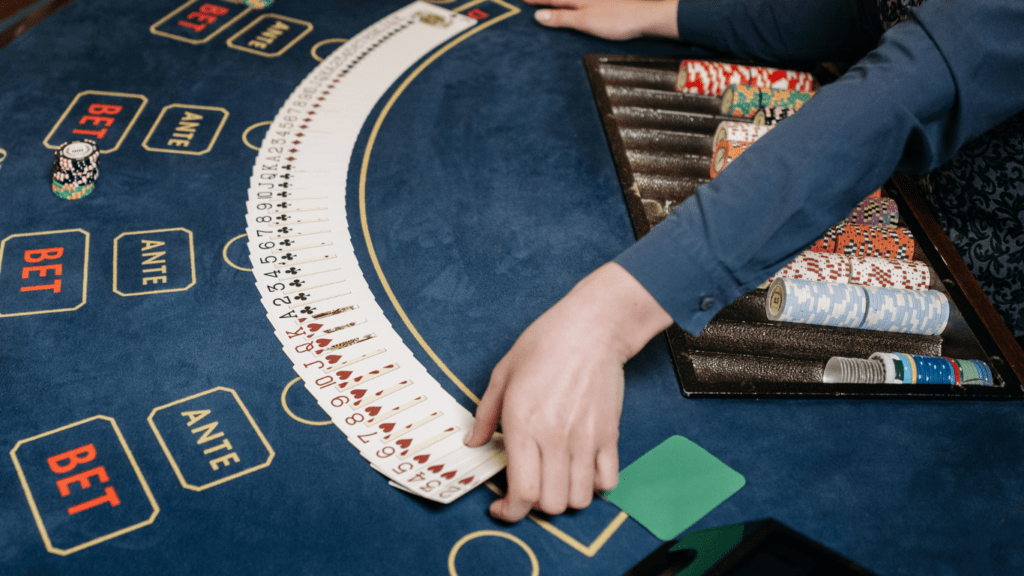Understanding Responsible Gambling
Responsible gambling involves maintaining control over gambling activities to ensure they don’t negatively impact one’s life. This includes playing within financial limits and keeping gambling as a form of entertainment rather than a way to make money.
Setting Time and Money Limits
Establishing clear boundaries on time and money spent on gambling activities is crucial. By setting limits, individuals can keep track of their activities and avoid overspending. For instance, deciding beforehand not to exceed 2 hours or $50 in a single session helps maintain control.
Recognizing Problematic Behavior
Identifying signs of problematic behavior early is key to preventing larger issues. Signs include spending more money than planned, gambling more frequently to recoup losses, or neglecting responsibilities. If these occur, seek support from organizations like Gamblers Anonymous or similar resources.
Balancing Gambling with Other Activities
Maintaining a balance between gambling and other aspects of life ensures gambling remains a casual activity. Spend time on other hobbies, professional tasks, or social commitments to keep gambling in perspective. For example, allocate certain days for non-gambling activities.
Educating Yourself About the Risks
Understanding the risks associated with gambling helps in making informed choices. Learn about odds, house edges, and the psychological effects of gambling. Knowledge empowers individuals to make responsible decisions and recognize when to stop.
Seeking Support When Needed
If gambling starts affecting your life negatively, it’s essential to seek help. Various support systems, such as counseling services and support groups, can provide assistance. Utilizing these resources ensures that gambling does not spiral out of control.
Understanding Personal Limits
Being aware of your own boundaries is fundamental for responsible gambling. Know how much money you can afford to lose and when to take breaks. Self-awareness prevents excessive losses and maintains a healthy relationship with gambling.
By implementing these practices, responsible gambling can be achieved, ensuring it remains a safe and enjoyable activity.
Assessing Personal Risk Tolerance

Understanding personal risk tolerance is crucial in responsible gambling. Evaluating how much risk I can handle helps make informed decisions and maintain a balanced approach.
Identifying Your Limits
Personal limits vary based on financial status, emotional resilience, and life circumstances. Knowing my financial capacity ensures I don’t overspend.
Evaluating my emotional response to losses helps gauge whether gambling causes undue stress or affects my wellbeing. Identifying these limits assists in managing my gambling behavior responsibly.
Setting Time and Budget Boundaries
Allocating specific time and budget limits is vital. I set a strict budget to avoid financial strain. By scheduling gambling activities within a fixed timeframe, I ensure other commitments don’t suffer. Adhering to these boundaries aids in maintaining a healthy balance.
Practical Tips for Managing Risk
Practical steps can help create a safer gambling experience. Effective methods focus on implementing self-control measures and utilizing management tools.
Implementing Self-Control Measures
Keeping control over gambling habits ensures a balanced approach. Setting strict time limits helps maintain focus. For instance, dedicating only 2 hours per session avoids excessive play.
Establishing financial boundaries, like a $50 weekly gambling budget, reduces impulsive spending. Regular breaks during sessions provide mental clarity.
Avoiding alcohol while gambling keeps decision-making sharp. These practices rely on discipline but significantly reduce risky behaviors.
Utilizing Gambling Management Tools
Leveraging available tools enhances responsible gambling efforts. Self-exclusion programs offer users options to block access to sites for periods, such as 6 months or a year.
Deposit limits, configurable on most platforms, restrict the amount of money added to an account daily, weekly, or monthly.
Reality check alerts remind players of time spent on a game, usually every 30 minutes or hour. Gambling blocking software prevents access to gambling sites across devices. These tools provide layers of control, supporting safer gambling environments.
The Role of Education and Awareness
Education and awareness are crucial in promoting responsible gambling. They empower individuals by providing the knowledge needed to identify risks and take preventive measures.
Recognizing Signs of Problem Gambling
Identifying problem gambling early is essential for maintaining control. Common indicators include:
- Financial Issues: Difficulty covering expenses due to gambling.
- Time Mismanagement: Spending excessive time gambling at the expense of other responsibilities.
- Emotional Distress: Feelings of anxiety, stress, or hopelessness linked to gambling.
- Interpersonal Problems: Strained relationships caused by gambling behavior.
Understanding these signs helps in taking quick action to mitigate negative effects.
Seeking Help and Resources
Access to resources and support is vital for managing gambling risks. Key avenues include:
- Support Groups: Organizations like Gamblers Anonymous provide a community for sharing experiences.
- Counseling Services: Professional counselors offer personalized strategies to address gambling issues.
- Educational Programs: Workshops and online courses provide tools and knowledge to promote responsible gambling.
- Helplines: Confidential helplines offer immediate assistance and guidance.
These resources support individuals in cultivating responsible gambling habits and seeking help when needed.
Creating a Balanced Gambling Experience
Maintaining a balanced gambling experience involves integrating activities that promote holistic well-being. This section focuses on blending gambling with other interests and establishing healthy habits.
Balancing Gambling With Other Activities
Diversifying interests ensures gambling remains just one of many pastimes. For example, hobbies like sports, reading, and social events can provide enjoyment and engagement. Planning a mix of activities prevents gambling from becoming an overwhelming focus. Allocating specific times for various activities helps maintain equilibrium. If gambling complements other enjoyable pursuits, it fosters a healthier lifestyle.
Establishing Healthy Gambling Habits
Healthy gambling habits maximize enjoyment while minimizing potential harm. Set firm budgets before starting any session, and stick to these limits regardless of wins or losses.
Allocate gambling funds separately from essential finances like bills and savings. Utilize time limits for each gambling session to avoid excessive play.
Take regular breaks to maintain focus and prevent fatigue. Engage in reflective practices by regularly assessing gambling behavior. If self-control remains challenging, consider using tools like self-exclusion programs.



 Edward Wendt – Senior Sports Analyst
Edward Wendt is the Senior Sports Analyst at Gamble Wins Daily, bringing a wealth of knowledge and expertise in sports analytics and betting strategies. His sharp analysis and accurate predictions have made him a trusted voice for bettors looking to maximize their profits. Edward’s commitment to delivering in-depth analysis and actionable advice helps readers make informed decisions across a wide range of sports.
Edward Wendt – Senior Sports Analyst
Edward Wendt is the Senior Sports Analyst at Gamble Wins Daily, bringing a wealth of knowledge and expertise in sports analytics and betting strategies. His sharp analysis and accurate predictions have made him a trusted voice for bettors looking to maximize their profits. Edward’s commitment to delivering in-depth analysis and actionable advice helps readers make informed decisions across a wide range of sports.
